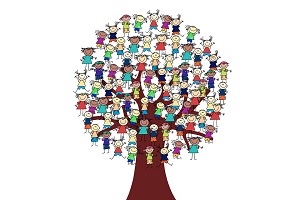By Dave Forrest, School of English
This post was originally written in 2019 and published on the old Elevate blog
Almost ten years ago, I was at a bit of a crossroads. I had finished my PhD, and I was working
part-time as an administrator in the Modern Languages Teaching Centre, topping up my wages
from some short term teaching work, and trying to work out what I was going to do with my life.
And then I started working on the Inclusive Learning and Teaching project. Claire Allam, who
now works with Elevate, explained to me that colleagues from across the University had been
working on developing a framework for inclusive learning practice drawing on numerous
projects across the institution and varied and wide ranging engagement with communities of
students. The project had produced a huge bulk of material, which Claire wanted me, as a
project assistant, to shape into a coherent form: the Inclusive Learning and Teaching Handbook,
a publication that would be sent to all members of teaching staff.
I set about drawing together the material into case studies and more practical hints and tips
sections. In editing together the book, I found myself thinking back to my own first-hand
experience of an inclusive learning and teaching project. I had been lucky enough to work on
the Storying Sheffield with Brendan Stone, a module in The School of English which brought
together undergraduate students and residents of the city, many of whom were long term
users of mental health services. Teaching on this module changed me in fundamental ways.
Having been a bit burned out and disillusioned with academic life – a natural response to the
end of a PhD – Storying Sheffield reaffirmed my faith in Higher Education, and looking back, it
made me realise the principles that guide my teaching practice to this day: experience of life is
a rich form of knowledge, diversity is a powerful resource, the classroom should be a site of
belonging and community, excellence and inclusion are not mutually exclusive, there is no such
thing as a ‘normal’ student.
These two linked experiences – teaching on the module with Brendan and working on the
project – have been on my mind a lot recently. As the focus of our work in the Programme
Level Approach has begun to take on a more thematic emphasis departments are being asked
to place inclusive learning and teaching at the heart of curriculum reform. In our Faculty, we’ve
prepared for this work by undergoing a process of reflection, running three workshops around
particular areas of emphasis: Decolonising the Curriculum, universal design for learning, and
building inclusive classrooms. We established a format for these whereby colleagues could
share good practice, and vulnerabilities and shared challenges.
As I look back to the work of the inclusive learning and teaching project all those years ago, I
can see many synergies with what we’re doing now – on the one hand, we are still identifying
practical steps that need to be taken to enable inclusive learning and teaching, such as the
consistent formatting of learning materials, on the other we are identifying more complex,
pedagogical and more broadly structural complexities that require deep thinking, and positive
action.
And so I’m convinced more than ever that this kind of work isn’t simply about toolkits and tick
box measures. It’s about continual processes of reflection, dialogue, listening to students, and
shaping our practices and curricula to respond flexibly, sensitively, and rigorously to the world
around us, and the worlds that learners bring into the classroom. The Inclusive Learning and
Teaching Handbook of 2010 was the start and not the end of the conversation.
Professional development of this kind is not something that can be pulled off a shelf; we need
to build it through shared experience and community. Elevate presents an opportunity to do
just that: to develop reflective and enriching cultures of learning and teaching in our university
so that the teachers are also, always, students.

